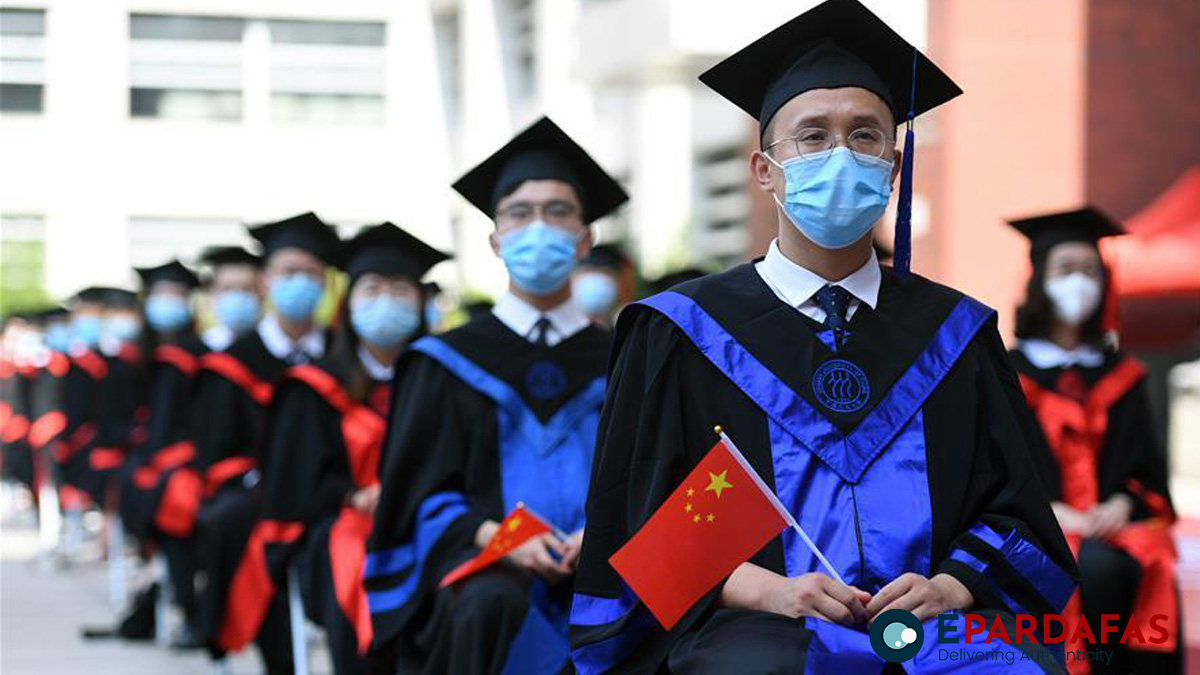
China Encourages College Graduates to Join Housekeeping Industry Amid Youth Unemployment Woes
China’s National Development and Reform Commission (NDRC) and several ministries recently issued a directive encouraging provinces to incorporate home economics majors into academic institutions and recruit college graduates into the housekeeping sector. The policy, part of the November 13 release of “Opinions on Deepening the Integration of Industry and Education in the Domestic Service Industry,” has sparked heated debate online, with many criticizing what they perceive as a devaluation of higher education in a tightening job market.
Policy Objectives and Targets
The NDRC’s directive outlines ambitious goals for the domestic service industry, including the annual training of 300,000 housekeeping practitioners, 30,000 trainers, and 10,000 professional managers. The policy also calls for each province to establish at least one high-level modern housekeeping education program and two national-level vocational programs.
Proponents argue that the initiative seeks to professionalize the domestic service sector, which includes roles such as cleaning, caregiving, and home organization. With the rapid aging of China’s population and growing demand for services like elder care, the authorities view this as an opportunity to align educational resources with market needs.
However, critics see the move as a band-aid solution to China’s surging youth unemployment rate, which exceeded 17% among 16–24-year-olds earlier this year before official data reporting was halted in August.
Public Outcry and Online Reactions
The policy announcement triggered widespread backlash on Chinese social media platforms like Weibo and Douyin (China’s version of TikTok). Many users, including recent graduates and parents, expressed frustration, arguing that the initiative reflects a misallocation of educational resources and highlights systemic problems in China’s labor market.
A Shanghai-based Douyin user, known as “Lao Kang,” posted a viral video mocking the policy. He joked about college graduates competing in the housekeeping market and quipped, “After 19 years of education, is the future to be a male nanny or a female cleaner?”
Other users echoed concerns about the erosion of the value of higher education. A Weibo user from Guangdong commented, “Housekeeping is hard, low-paying, and often disrespected. Encouraging college students to take up this work is not a solution to unemployment.” Another user criticized the initiative as a way for the government to shift responsibility for unemployment to individuals.
Economic Pressures and Employment Realities
The heated debate reflects deeper challenges facing China’s labor market, where a glut of graduates is competing for limited opportunities. Many graduates report submitting hundreds of applications and enduring grueling multi-round interviews for jobs offering modest salaries.
A 25-year-old graduate, identified only as Ray, shared his experience with VOA News, describing the job market as “overly competitive.” Despite submitting over 150 applications since returning to Chongqing after studying in the UK, Ray said many interviews dragged on for months without resolution. He dismissed the idea of pursuing a housekeeping career, saying it would conflict with his family’s expectations.
“Young graduates want meaningful, stable work,” he said. “Most families, like mine, see housekeeping as unworthy of the investment made in education.”
Professionalizing Housekeeping: Challenges and Opportunities
While much of the backlash focuses on low-end domestic roles, some experts highlight growing demand for high-end domestic services, including professional cleaning, elder care, and estate management. Salaries for specialized roles in these areas can exceed 10,000 yuan ($1,400) per month, making them competitive in China’s job market.
However, Li Qiang, founder of China Labor Watch, remains skeptical of the initiative’s success. He noted that China’s economic slowdown, coupled with shrinking middle-class purchasing power, could undermine the demand for domestic services. “The government is pushing graduates into an unstable market,” he argued, suggesting the policy is more about managing unemployment statistics than creating sustainable careers.
Structural Issues in Higher Education
China’s expansion of higher education has also been identified as a contributing factor to the mismatch between graduate qualifications and job market needs. Over the past two decades, the number of university students has surged, leading to overcrowded classrooms and a decline in the perceived quality of education, particularly in second- and third-tier universities.
Graduates from elite institutions such as Tsinghua and Peking University still enjoy better job prospects, but even they face intense competition. Many opt for civil service exams or further studies, avoiding what they see as low-prestige roles.
Aging Population Driving Industry Needs
China’s aging population presents a silver lining for the domestic services industry. With over 260 million citizens aged 60 and above, demand for elder care, health services, and long-term caregiving continues to grow. Industry leaders argue that these roles could provide stable, well-paying opportunities if properly integrated with professional training programs.
Meng Deming, CEO of Shandong Qilu Traditional Chinese Medicine Group, said his organization has successfully recruited young workers into elder care roles by emphasizing career development and competitive wages. However, others in the sector remain concerned about widespread economic uncertainty and delayed payments, which could deter graduates.
The Road Ahead
China’s push to integrate college graduates into the domestic service industry reflects a broader reckoning with the challenges of a shifting economy and labor market. While the initiative aims to professionalize the sector and address unmet societal needs, its reception underscores cultural stigmas, systemic inequalities, and persistent unemployment issues.
For policymakers, the task ahead is twofold: improving job prospects for young graduates while ensuring the domestic service industry evolves into a sector capable of attracting and retaining skilled workers. Without addressing these underlying issues, the policy risks being seen as a short-term fix for a long-term problem.













Comments